WHO issues stark measles warning as cases surge 30-fold in the last year
In the UK alone, more than 3.4 million children are believed to be unvaccinated against the disease
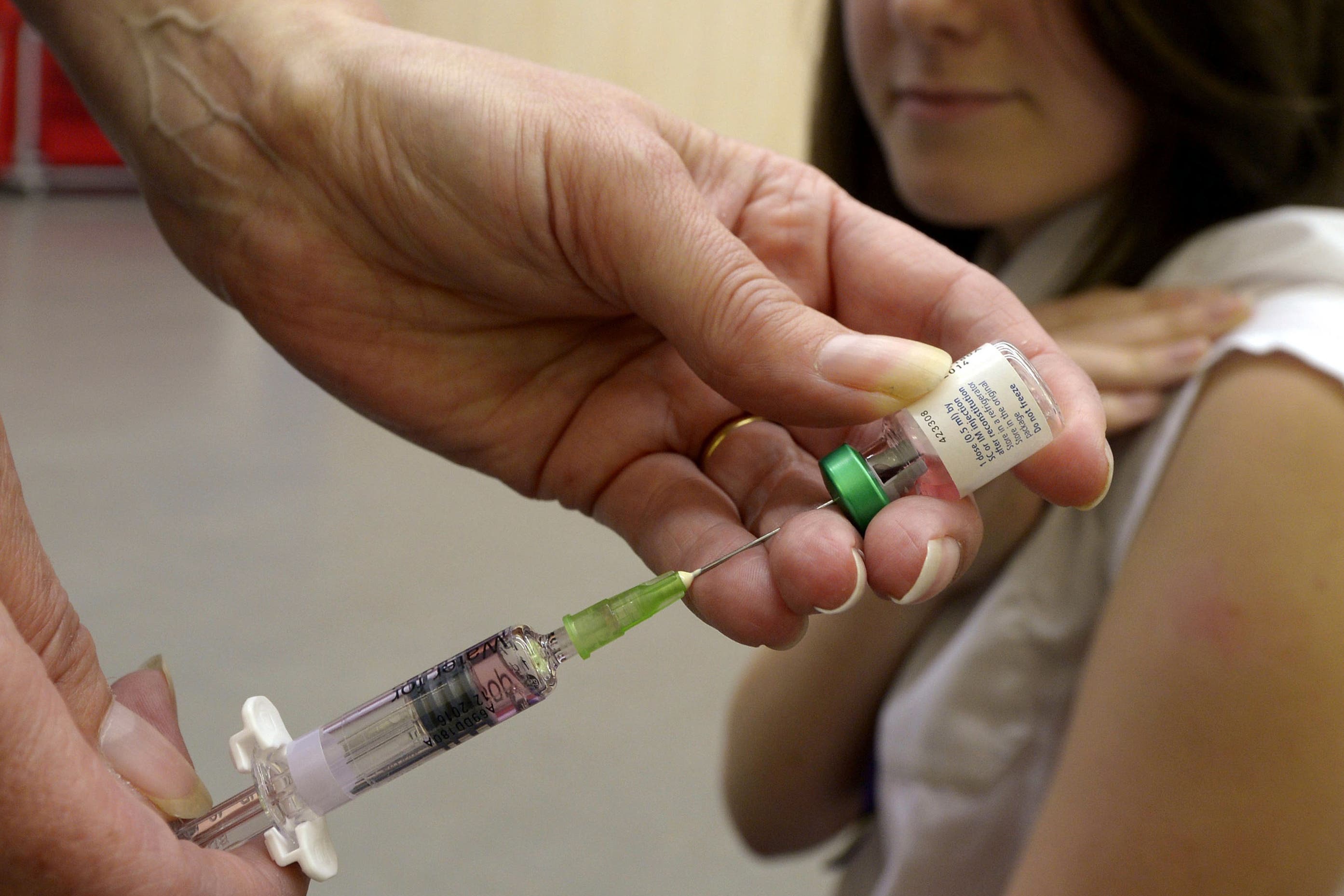
Your support helps us to tell the story
From reproductive rights to climate change to Big Tech, The Independent is on the ground when the story is developing. Whether it's investigating the financials of Elon Musk's pro-Trump PAC or producing our latest documentary, 'The A Word', which shines a light on the American women fighting for reproductive rights, we know how important it is to parse out the facts from the messaging.
At such a critical moment in US history, we need reporters on the ground. Your donation allows us to keep sending journalists to speak to both sides of the story.
The Independent is trusted by Americans across the entire political spectrum. And unlike many other quality news outlets, we choose not to lock Americans out of our reporting and analysis with paywalls. We believe quality journalism should be available to everyone, paid for by those who can afford it.
Your support makes all the difference.A worrying outbreak of measles has led the World Health Organisation (WHO) to issue a fresh warning after a 30-fold increase in cases across Europe.
The spread of the disease has “accelerated in recent months” with more than 30,000 cases reported by 40 of the region’s 53 member states between January and October last year, compared to 941 cases in the whole of 2022.
This “alarming rise” includes the deaths of five individuals in two countries, as well as 21,000 hospitalisations.
Two in five cases were in children aged one to four, while one in five were among people aged 20 and over.
The WHO has warned that the rising trend is expected to continue if people do not vaccinate their children against the disease.
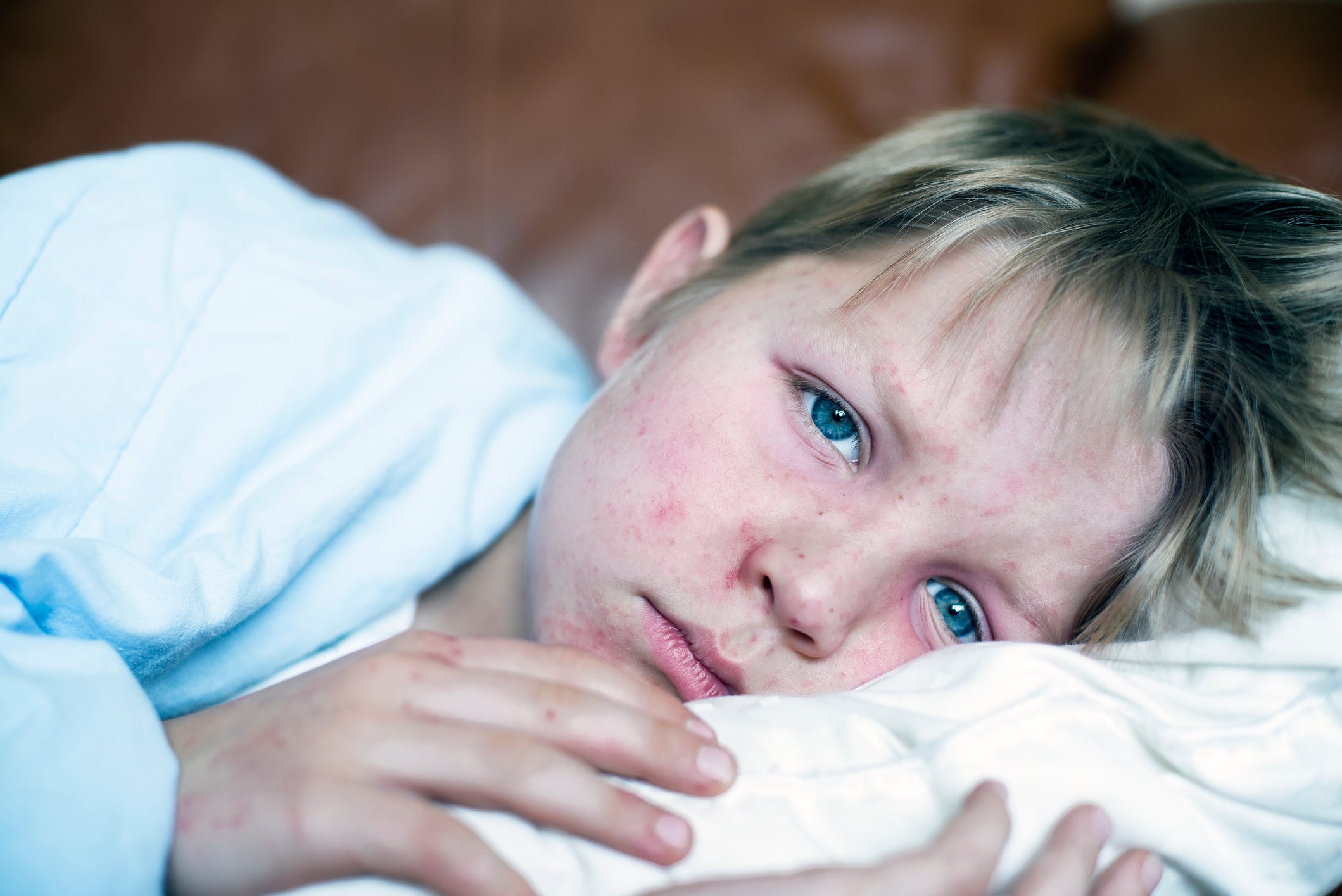
The increase in cases in Europe has mirrored the the growing concern in the UK, with a national campaign launched to boost uptake of the vaccine.
Outbreaks in the West Midlands and in London has caused the UKHSA to declare a national incident, with parents encouraged to get the measles, mumps and rubella (MMR) vaccine for their children.
Figures from NHS England suggest that more than 3.4 million children under the age of 16 are unprotected against the trio.
Measles is a highly infectious disease that can cause serious complications, lifelong disability and even death in extreme cases. If caught during pregnany, it can lead to miscarriage, low birth weight or still birth.
It can also affect the lungs and brain and cause pneumonia, meningitis, blindness and seizures.
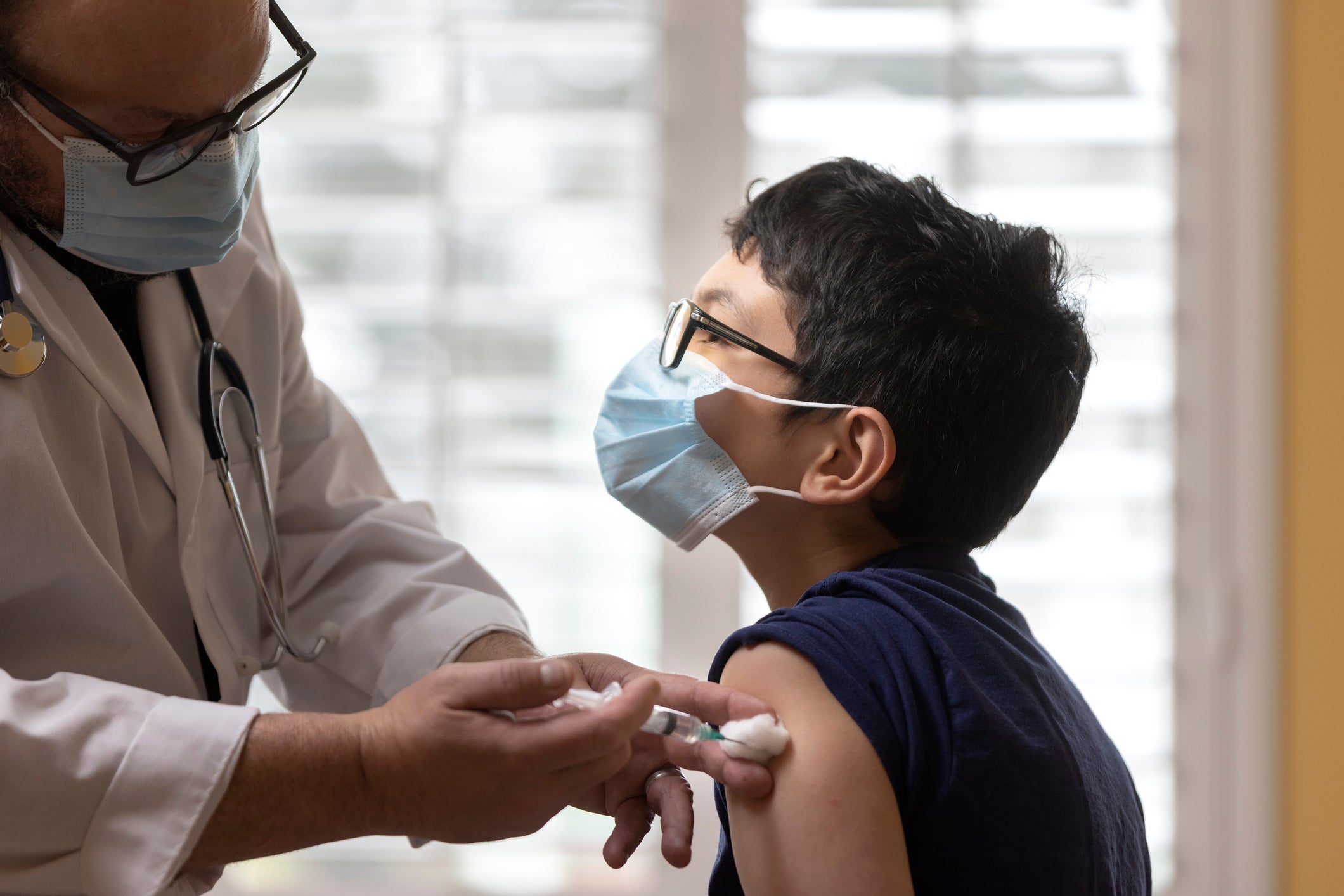
Dr Hans Kluge, WHO regional director for Europe, said: “Vaccination is the only way to protect children from this potentially dangerous disease.
“Urgent vaccination efforts are needed to halt transmission and prevent further spread.
“It is vital that all countries are prepared to rapidly detect and timely respond to measles outbreaks, which could endanger progress towards measles elimination.”
WHO said that sliding vaccination rates were to blame, but more people were now travelling abroad after Covid-19, increasing the risk of cross-border disease transmission and spread within communities.
On Friday, the head of the UK Health Security Agency (UKHSA) warned the UK is on a “trajectory for everything getting much worse” when it comes to measles spreading.
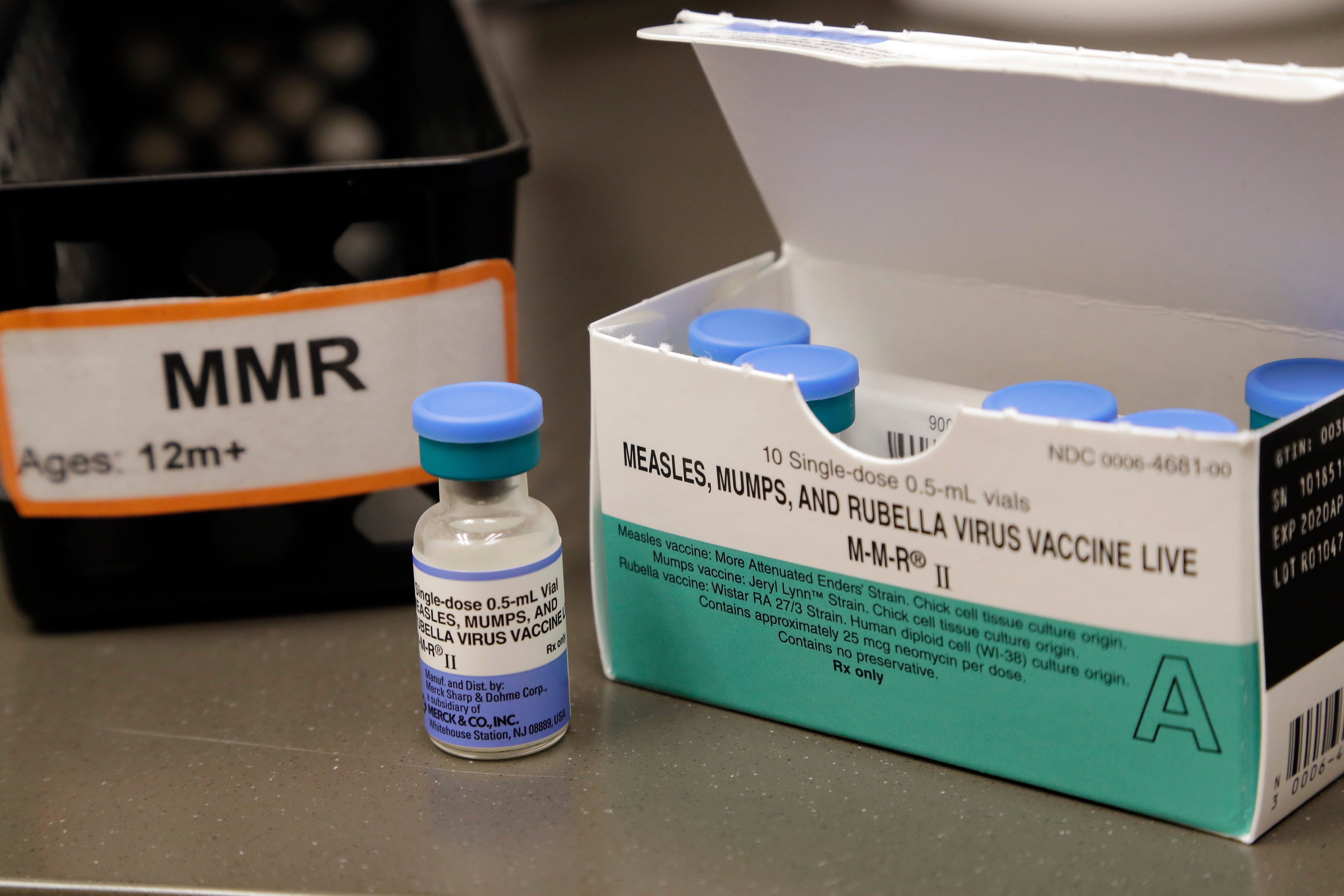
Professor Dame Jenny Harries said that “concerted action” is needed to tackle the virus, as she visited a measles blackspot in the West Midlands.
She suggested the majority of people are not against their child receiving the MMR jab, but that they need more information to feel confident about their decision.
She added: “What we are seeing at the moment with measles is that people have forgotten what a serious illness it is.
“We have had very high vaccination rates, especially for young families, but they are low at the moment.”
Vaccination rates across the country have been dropping, but there are particular concerns about some regions, including parts of London and the West Midlands.
Figures released by the UKHSA on Friday showed there have been 216 confirmed measles cases and 103 probable cases in the West Midlands since October 1 last year. This is despite the UK declaring in 2016 that the country was measles-free.
Four-fifths (80%) have been found in Birmingham while 10% were identified in Coventry, with the majority being in children aged under 10.
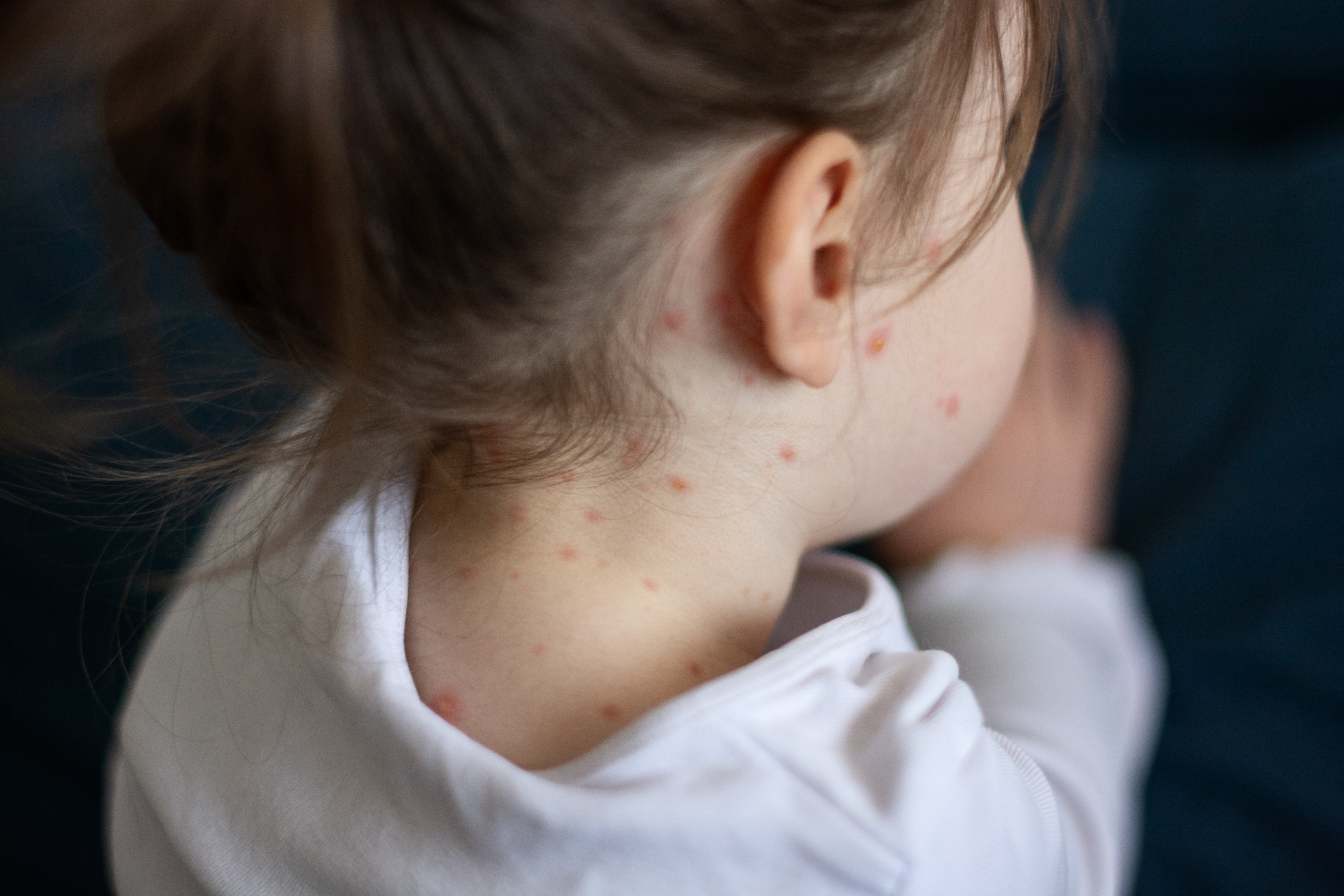
The UKHSA has declared a national incident, which it said is an internal mechanism signalling the growing public health risk and enabling it to focus work in specific areas.
Official figures show uptake of the vaccine is at its lowest point in more than a decade. This is believed to be due to the influence of vaccine misinformation, people experiencing difficulties accessing appointments, the impact of Covid-19 and parents mistakenly believing the disease is not serious.
In 2022/23, some 84.5% of youngsters in England had received both doses of the jab by the time they were five years old – the lowest level since 2010/11. Some 92.5% had received one dose.
Mike Tildesley, professor of infectious disease modelling at the University of Warwick and an expert in disease spread and Covid, said the R number for measles – the number of people that one infected person will pass the illness on to – is much higher than for Covid.
“This means we need over 90% of the population to be immune or you’re going to start seeing cases growing,” he said.
“We have childhood vaccinations for measles which for many years have helped us to get rid of the disease.
“Unfortunately, if those vaccination levels drop then we will start to see cases going up and that’s what we are seeing at the moment.”
Join our commenting forum
Join thought-provoking conversations, follow other Independent readers and see their replies
Comments